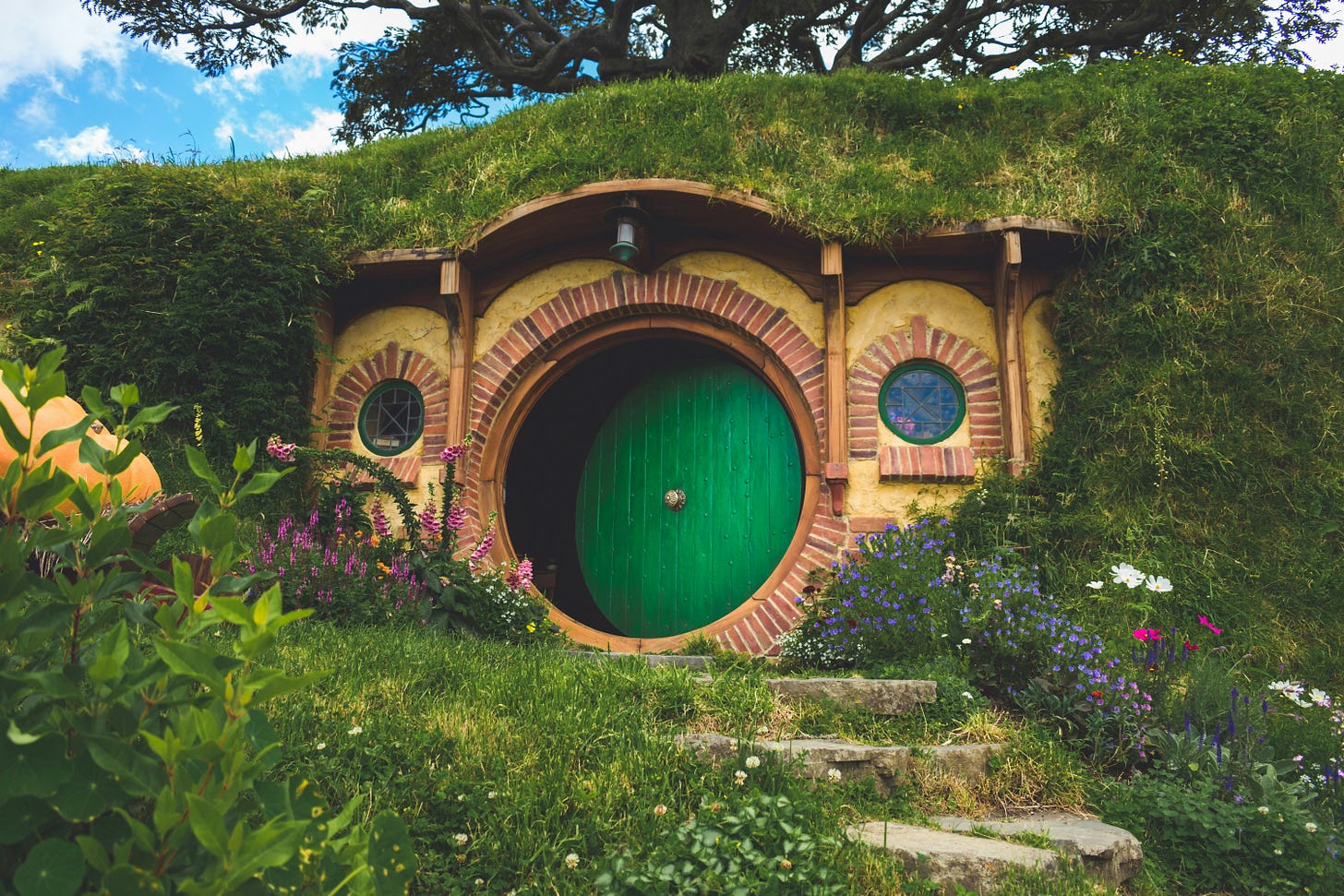The Loneliness of Bilbo Baggins
What no one tells you about the hero’s journey: the hardest part is coming home

This week I’m doing something I never thought I’d do:
I’m going back to the place I lived before Portugal.
After three years of plot twists and turns—some earned, some imposed—
life has conspired, in what feels like a cosmic joke,
to bring me back to the place I couldn’t wait to leave.
Everyone keeps saying, “You must be so relieved to be back.”
There’s comfort here, sure. Familiar faces. Well-worn trails.
But there’s also an ache I can’t quite name.
A dissonance between what people see and who I’ve become.
Because while the streets haven’t changed much, I have.
And the version of me that left isn’t the one walking back through the door.
That’s the thing no one tells you about the hero’s journey.
They celebrate the leaving.
They glamorize the quest.
But they forget to warn you how lonely it is to come home changed.
It’s a strange kind of grief,
to try and describe something epic
only to be met with a polite smile—or worse, that blank look that says:
Who would ever want to do that?
You want to shake them and say:
I faced dragons. I walked through fire. I saw beauty that split me open.
And no, I didn’t come back richer or more successful.
But I came back different.
And I wish—just once—someone would look at me and say:
I can tell.
But the loneliness isn’t really about being misunderstood.
It’s not even about recognition.
What you’re really searching for is kinship.
Because when you’ve been a stranger in a strange land—
when you’ve slept under foreign stars and let unfamiliar streets rearrange your soul—
you develop a sixth sense for others like you.
You can spot them in a train station.
On a ferry.
In the corner of a coffee shop or a dusty bar in a nowhere town.
There’s no need for words.
Just a glance, maybe.
A pause that holds something ancient.
A flicker of shared restlessness, like two nomads briefly crossing paths.
And in that moment, something in you exhales.
The ache to belong—
to someone, to somewhere,
even if that somewhere is everywhere and nowhere at once—
is momentarily met.
That’s what’s hard about coming home.
Not just that people still see the old you,
but that the other adventurers aren’t here.
The ones who know what it’s like to be remade.
Who wouldn’t ask you why you left or what you got out of it,
because they already know that becoming someone else is both the gift and the cost.
Which brings me back to Bilbo.
I imagine he was happy, in the end—
sitting on his familiar stool,
pipe in hand, feet up,
listening to the wind rustle the trees in the Shire.
But I also imagine—
every now and then—
his eyes drifting toward the ridgeline.
Scanning the horizon, imperceptibly.
Not looking for danger, but for wonder.
For the glint of a staff.
The rustle of a cloak.
A familiar voice saying,
“Come on. Let’s go have an adventure.”
Because once you’ve known the magic,
once you’ve tasted a life that cracks you open and lets the world rush in—
you’re never really content with comfort again.
Grateful, yes.
Grounded, maybe.
But part of you is always listening for footsteps on the path.
Always hoping that mystery might knock on your door one more time.





I can tell.
"The road goes ever on and on . . . " from a Tolkien song. I think Joseph Campbell would agree with you: the hero returns changed from the journey, and has to find a different way to be "home."